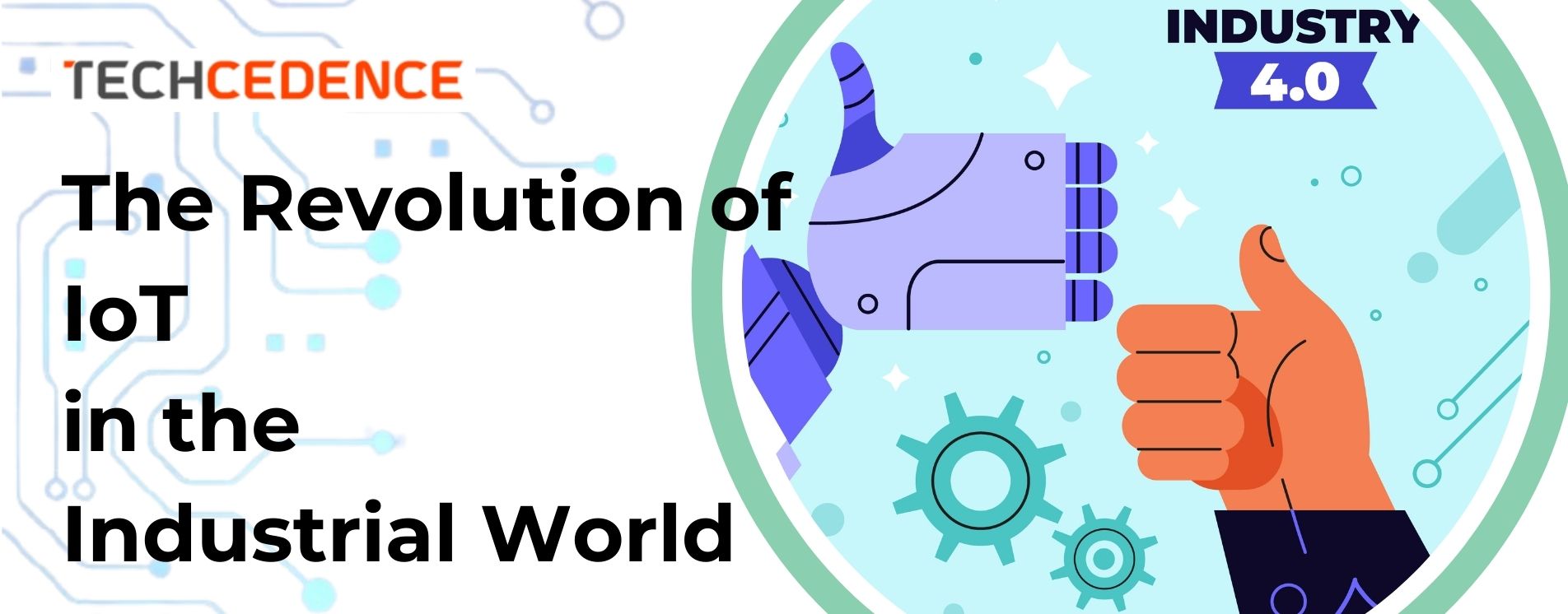
Categories : Uncategorized
Author : vivekkumarp Date : Jul 8, 2024
Manufacturing and industrial processes have evolved significantly over time, but we are now witnessing a transformative shift known as the Fourth Industrial Revolution or Industry 4.0. This new era leverages the Internet of Things (IoT) to dramatically boost productivity and operational efficiency across various sectors.
What’s Industry 4.0 and Why IoT
The first industrial revolution started with mechanical instruments that were powered by water and steam which boosted the production capabilities, the second was powered by electricity leading to mass production, and in the third revolution computer took part and opened the gates to automation, connectivity, and operational efficiency now the fourth is fueled by data and machine learning with the rise of smart and autonomous systems.
IoT being the core of this revolution – it enables a seamless connection between interconnected devices through computers, sensors, and other IoT devices, enabling them to exchange information, make decisions, and optimize processes with minimal human interventions. The collaboration of IoT and Industry 4.0 is driving industries towards a higher level of accuracy and efficiency.
The Importance and Advantages of IoT in Industries
Numerous benefits await the industries that integrate IoT into their processes. Let us quickly go over the key ones.
Enhanced Efficiency
Everything is data in IoT a huge volume of data is processed every second to identify patterns and insights which allows the system to monitor the performance and identify defects and inefficiencies in the process by doing so they can adjust their operation in real-time for optimal productivity. This helps industries in more efficient use of their resources.
Predictive Maintenance
The health of the equipment is monitored in real-time by IoT sensors, allowing for the Anticipation of potential failures before they happen and allowing for planned maintenance helps minimize downtime and averts production disruptions.
Improved Safety
Worker safety and environmental conditions can be monitored by IoT devices, which can alert on potential hazards. Additionally, wearable IoT devices can monitor the health and vitals of workers to ensure they operate safely and efficiently.
Data-Driven Decision Making
Real-time data enables industries to make informed decisions quickly, responding to market changes and customer requirements efficiently. For example, an IoT-enabled inventory management software solution can track inventory levels allowing the companies to adjust their production schedules and supply chain operations accordingly.
IoT In Supply Chain Automation
IoT has made a significant impact on supply chain management, from inventory management to product delivery. Inventory management software powered by IoT can generate automated analytics and reports. At Techcedence, we have applications like TracInv which uses IoT sensors and RFID to provide real-time visibility into inventory levels, thus helping to:
– Maintain optimal inventory levels
– Minimize stockouts and lost sales
– Improve cash flow by avoiding overstocking
– Improve product availability to increase customer satisfaction.
By integrating machine learning algorithms, business intelligence and data analytics services, these systems get smarter over time, adapting to seasonal fluctuations and changing market conditions.
While inventory management benefits from these advancements, the impact extends to asset management as well. Our Innovative solutions like TracAsset harness technology to comprehensively track, maintain, and optimize fixed assets. These tools offer continuous monitoring of performance metrics and usage patterns, while also providing timely alerts about environmental changes. This wealth of data enables businesses to make well-informed decisions regarding their asset management strategies.
The Future of IoT in Industry
As we look to the future of industrial technology, the merging of IoT with other cutting-edge innovations promises to reshape the manufacturing landscape. Two key areas of development stand out:
The integration of these with IoT systems is set to revolutionize industrial processes. We can expect:
Advanced Predictive Analytics
Machine learning algorithms will be able to alert on maintenance needs, potential disruptions, and accurate forecasts on the demand, which allows Industries to plan more effectively and avoid risks before they impact operations.
Personalized manufacturing
The implementation of IoT and automation will make mass customization possible, enabling products to be customized according to customer specifications. This increased flexibility has the potential to improve customer satisfaction and create new market possibilities.
Advanced Cybersecurity Measures
As industries become more digitally connected, protecting these systems becomes paramount:
Embracing the Revolution
The industrial world is undergoing a major transformation driven by IoT and related technologies. software development companies are building IoT enabled applications that are empowering industries to reach new levels of productivity and competitiveness by optimizing operations with less human intervention. As we move further into the era of Industry 4.0, companies that embrace these technologies and adapt their business models to leverage the power of IoT will be best positioned to thrive in the increasingly digital and interconnected industrial landscape of the future.
Embracing these IoT-driven advancements may require significant investments and operational changes. However, the potential rewards in terms of enhanced productivity, innovation, and customer satisfaction make it a compelling path forward for industries looking to stay competitive in the digital age.